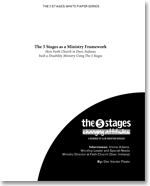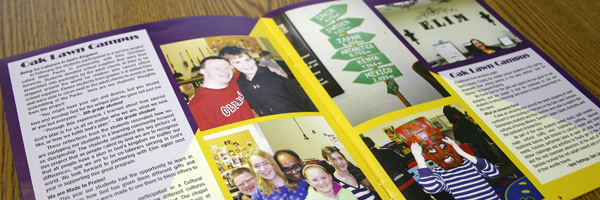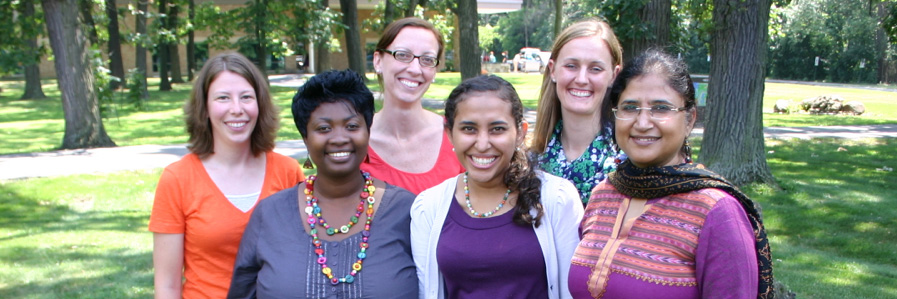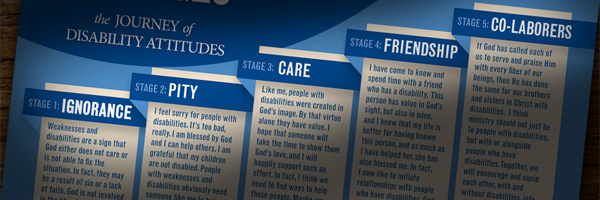Living with disabilities is not as much of a blessing as you might think.
A few years ago I was at an event at the local Christian college, and afterwards I was speaking with the wife of the college president. They had a child who was a student in Elim’s school program.
There were several conversations going on at Elim at the same time. The kind of conversations that you have when you are wondering what your organization is about and whether or not it’s relevant and whether or not you’re talking about the right things when you talk with donors and people from the community.
One of the things that we were talking about was what it meant for people who had disabilities to be a blessing to other people. It was an easy conversation to have. It seems like people understood it, especially those who had experience with people with disabilities, but one of the factors that goes into that discussion is what does it mean to be a blessing to someone else.
I remember talking, in all my naïvete, to this wonderful mom (the wife of the college president), and she was talking about her experiences with her son, and when I told her that we at Elim are talking about people with disabilities as being a blessing to other people, she didn’t exactly bristle, but her response could not be characterized as warm.
She said that she did not like it when organizations and people simply talked about people with disabilities being a blessing, and there’s a reason for that. It’s not that people with disabilities can’t bless other people, but it is simpleminded to expect that they are a blessing at all times and in some cases, to perceive them as simply being a blessing because they are disabled.
There are many times when people I know have claimed that people with disabilities teach us more than we teach them or that they simply love more than we love, that they understand more than we give them credit for. Each of these comments, while perhaps true to the experience of the person who utters them, is patronizing in many ways.
For instance, we can deify the person with disabilities, extending to them qualities which are extra-human, marking them as a super-crip. In such a way, you could argue, we even demean them by doing that, by saying that there are different expectations of someone with disabilities.
Now these kinds of comments about people with disabilities, that they’re more of a blessing to people than we are, that they love more, that they understand things that we don’t give them credit for, they’re not always untrue, but they are indicative of a perception of people with disabilities that they aren’t expected to do what we do, that they aren’t called by God to the same calling that we have.
I suppose that’s why when I think about what it means to be a friend of someone with disabilities, I can understand that one of the aspects of that friendship is valuing that person and really defining where that value comes from.
Now we can talk about and argue about “value” all day long, but this is a central, core tenet of what it means to have a Godly attitude towards people with disabilities.
What this mom was pointing out to me was that looking at people with disabilities and extending to them some kind of extra-human characteristic was robbing them of the character that they actually have in God. If we are talking about how to value people with disabilities, as Christians we always associate that with someone’s value in God, but when we say that a person with disabilities has a greater capacity for love or that somehow they teach us more than we teach them, then we are saying that where their value lies is in what they can teach us or how much they love and how much better they actually are than we are.
These are false characteristics. That isn’t really where their value is.
What this Elim mom was telling me is that we don’t look at our children who have disabilities or our adult friends who have disabilities and claim them to be something more than what they truly are. They are fallen like us. They are called like us.
The expectations that they should play a role in the kingdom of God should be no different from what is expected of us.
A lot of that is dependent on the value that we place on their lives, and if we expect more of them than what they capable of, we’re not assigning them a fair value. If we say that they not capable of doing anything, then we not assigning them a value that God has placed on their life, and finally if we assign to them some kind of extra-human characteristic that they are simply more loving and more in tune with God’s kingdom than we are, then we’re also saying that that’s what is expected of them and we’re making that their job description in God’s kingdom when their job description is really the same as ours.
If we do anything else, we’re actually being condescending. We’re patronizing.
No one is exempt from the call that God places on our lives. It doesn’t matter if you are more loving and more knowledgeable or whatever, you still have the same calling – to humble yourself before God, to serve at his pleasure, to serve at his mercy in his kingdom, for his glory. That call is the same for me and for you and for people with disabilities, for people who are poor, for people who are disenfranchised. For anyone who calls on the name of the Lord, the calling is the same; we are all called to serve his kingdom.
We’re also called to do something that is perhaps is difficult for us to understand. We have to rid ourselves of the notion that God has placed a call on us because we’re normal, we have capacity, we have capability.
We are not the only ones who have been called to service in God’s kingdom.
When God says, “Encourage each other into every good work,” when he says, “Go into the world and baptize men and women in the name of God,” when we are called to do those things there is no line between people who are non-disabled and people who are disabled. There’s not some imaginary line between them. Everybody is subject to that call, everybody has been called by God, everybody has been gifted by God, and our job is to encourage and equip each other into every good work, those works that God has prepared in advance for us to do.
 Dan Vander Plaats is the Director of Advancement at Elim Christian Services in Palos Heights, Illinois, a ministry that exists to equip people who live with disabilities to answer God’s call on their lives. He is also a member of the advisory committee for Disability Concerns for the Christian Reformed Church. In 2009, he developed “5 Stages: The Journey of Disability Attitudes” as a resource for Elim. The 5 Stages helps churches and individuals assess their attitudes toward people with disabilities. He is married to Denise (Hiemstra), and is father to Ben and Emma. They are members of Orland Park Christian Reformed Church in Illinois.
Dan Vander Plaats is the Director of Advancement at Elim Christian Services in Palos Heights, Illinois, a ministry that exists to equip people who live with disabilities to answer God’s call on their lives. He is also a member of the advisory committee for Disability Concerns for the Christian Reformed Church. In 2009, he developed “5 Stages: The Journey of Disability Attitudes” as a resource for Elim. The 5 Stages helps churches and individuals assess their attitudes toward people with disabilities. He is married to Denise (Hiemstra), and is father to Ben and Emma. They are members of Orland Park Christian Reformed Church in Illinois.
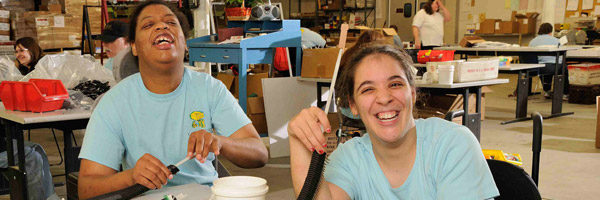
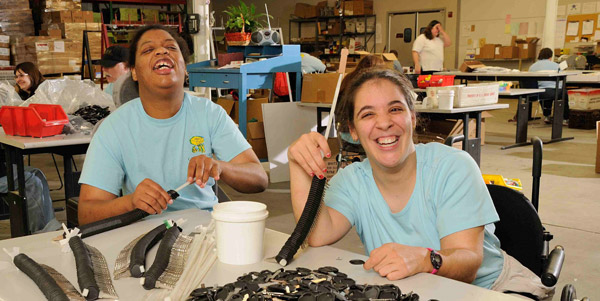

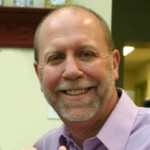 Bob Marsh is the Vice President for Outreach and Advancement at
Bob Marsh is the Vice President for Outreach and Advancement at 
